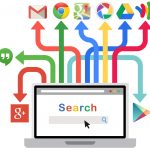The Powers That Be: Big Data & Commodification
I got my first good look at commodifciation–and the power structures pertaining thereto–in Dr. Packer’s Critical Analysis of Media course last semester. Upon completing that class, and gaining academic perspective through publications such as Andrejevic’s “The Work of Being Watched”, I’ve come to the personal conclusion that the most valuable type of data is the kind that can be derived from consumers who don’t even necessarily know they’re contributing it in the first place. This sentiment is echoed by J.J. in “Controversies in Digital Ethics”, as he writes, “What work is it that the audience is doing while watching advertisements? They are learning to buy goods! The audience, then ends up paying for the privilege of doing work rather than being themselves remunerated.”
When someone engages in an advertisement, they’re essentially supplying the system with free labor, as their accrued data forecasts patterns, trends, and likelihoods. This puts the company that crafts the message behind said advertisement at a decided advantage in terms of what to market and how to market–and as such–if I could own this data for myself, I would use it similarly to corner the market on a particular good or service. Especially after this class, I’d like to say that I’d take the high road and leave the data in the hands of those who provide it, but common sense would dictate using the data to predict what people are going to do before they actually do it–and thus–staying one step ahead of the game to know how to tailor to that.
While I’m starting to sound power-hungry, I haven’t completely lost touch with my morals, and everything ingrained in me wants to say that all these companies are unjustified in how they acquire data and conduct themselves in general. However, as I–and many of the other students in class–have stated, current data acquisition practices are simply a matter of status quo within our contemporary socioeconomic climate. If you want the benefits of goods and services, you have to play the game. That’s how it is–and to a certain extent–I imagine that’s how it’s always been. So while I think companies have a propensity toward the devious and disingenuous, I don’t think they’re asking for more than we’re all-too-fast in agreeing to in the fine print of their terms and conditions.
From a personal standpoint, I don’t think I generate as much data as someone with four or five social media accounts; however, I do my shopping and get my news predominantly online, which makes me a juicy target for this type of commodification. Even though the bulk of my data might be coming from my browser, rather than an app like Facebook or Twitter, I would say that I’m fairly valuable. Rarely a day goes by–if one does–where I don’t see some ad cleverly placed somewhere I never thought it would be (I bought my girlfriend some shoes from Old Navy, and now every time I go to stay up to date on MMA, there’s an advertisement for women’s boots; Really?). Tene and Polonetsky’s “sharing the wealth” strategy is starting to sound better and better to me be the day, but I know that’s just a pipe dream. Ultimately, in a commodity-driven world, I’m not sure you can realistically expect everything to be on the up and up.
 Previous Post
Previous Post Next Post
Next Post
Matt, the point you made about your girlfriend’s shoes got me thinking – big data has come so far already; how come they haven’t figured out a sort of “filter” to identify when we make purchases online for ourselves or for others? I feel like it would be relatively basic to have some sort of algorithm that measures each click; for most people, like you and me, it would be clear, based on what we are normally looking at online, that maybe we shouldn’t be targeted for the outliers we buy. Granted, there will always be gifting holidays, but is it worth the companies who pay millions to place their advertisements on the side of our screens to entice us to buy something that we would only buy, I don’t know, maybe three times a year? Perhaps our “regular” sites and purchases should get priority in this algorithm? Or maybe these infrequent purchases think that we’ll start to buy more frequently if we see them constantly?
Hey Matt, so I somewhat disagree with your section on free labor by people paying for a content-providing service, and then still watching ads. Perhaps the problem came about decades ago when ads and entertainment/media outlets were becoming more dependent on one another, but now I think that watching advertisements is a form of payment. How much would watching tv cost if it were ad free? How much would a ticket cost to go watch a sporting event if they didn’t advertise to you at all opportunities?
If you think about it the audience has even taken over the role of advertising to a certain extent, so long as the stars align just right enough to ensure compliance. Thanks to social media, now some advertisements can get the bulk of their press from people sharing the ads on things like Facebook. Even bad/weird ads or movies (or whatever else) can get more clout from this, after all, bad press can still be good press in the right circumstances.